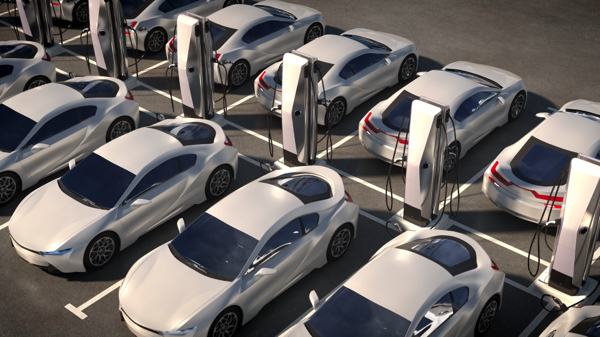Swedish carmaker Volvo has abandoned its goal to pivot toward an all-electric product line as demand for electric vehicles (EVs) plunges.
The company made this announcement on Sept. 4, citing “softening demand for pure battery-powered cars” as per Euronews. Before the announcement, Volvo had already laid out its ambitious goal of becoming an all-electric car manufacturer by 2030. This decision highlights the ongoing challenges facing the automotive industry as it navigates the transition to electric mobility.
Volvo originally sought to phase out gasoline-powered vehicles entirely, focusing solely on EVs by the end of the decade. But now, it plans for 90 to 100 percent of its global sales to come from electrified vehicles by 2030. This new target includes a mix of fully electric vehicles and plug-in hybrids, with the possibility of maintaining a small percentage of mild hybrid models, if necessary.
Volvo’s shift in strategy is not without consequences. Following the announcement, the company’s stock fell over four percent – adding to a 12 percent decline over the past six months. This comes after Volvo reported weaker-than-expected earnings for the first quarter and offered cautious guidance during its second-quarter earnings call.
Despite Volvo’s revised timeline, the company remains committed to increasing the proportion of EVs in its lineup. By the middle of this decade, Volvo aims for 50 to 60 percent of its sales to be electrified models – positioning itself to potentially become fully electric when market conditions improve.
Currently, 26 percent of Volvo’s vehicles are fully electric, the highest percentage among its premium competitors. EVs, including hybrids, made up 48 percent of Volvo’s total sales in the second quarter of this year.
Volvo still committed to NET ZERO
One key factor behind Volvo’s strategic shift is the growing consumer preference for hybrid vehicles over pure electric ones. As the affordability of fully electric cars continues to be a concern, many consumers are opting for hybrids, which offer a balance between electric and traditional gasoline power.
This trend is not unique to Volvo. Even Tesla, a pioneer in the EV market, has seen its profit margins shrink and growth slow since 2023 – partly due to changing consumer preferences.
The broader automotive industry is grappling with several challenges that are complicating the EV shift. A price war in China, a key market for EVs, has added pressure to automakers’ profit margins. Additionally, new import tariffs on Chinese-made EVs imposed by the European Union and the U.S. have introduced further uncertainty – with China threatening reciprocal measures.
Volvo also pointed out that the appeal of owning an electric vehicle has diminished in some regions. The expiration of government subsidies for renewable energy vehicles – coupled with falling oil prices – has made fully electric vehicles less attractive to consumers. Furthermore, the slow rollout of charging infrastructure and the recent tariffs on EVs have added to the challenges. (Related: Failed GREEN deal? Biden awards nearly $2B to carmakers to boost EV sales because almost nobody wants to buy them at fair market prices.)
Despite these hurdles, Volvo remains committed to its long-term goal of achieving Net Zero greenhouse gas emissions by 2040. The company emphasized the need for stronger and more stable government policies to support the transition to electric vehicles – recognizing that the path to electrification will be neither smooth nor uniform across different markets.
Volvo’s decision to scale back its EV-only plans is part of a broader trend in the automotive industry. Other major manufacturers are also re-evaluating their electric vehicle strategies.
While Volvo’s revision of its 2030 EV goals reflects the current market challenges, it also underscores the company’s pragmatic approach to the evolving automotive landscape. As the industry continues to adapt, it is clear that flexibility and responsiveness to consumer needs will be key to navigating the road ahead.
Visit GreenDeal.news for similar stories.
Watch this video about Volvo scraping its sales target as EV demand faces a serious decline.
This video is from the Daily Videos channel on Brighteon.com.
More related stories:
Op-ed: Biden administration’s “green energy” schemes AREN’T AS GREEN as they seem.
Study finds electric vehicles pollute the environment 1,850 times more than gas-powered cars.
EV COLLAPSE: Car dealerships are not rejecting EV deliveries due to low sales.
Sources include:
WattsUpWithThat.com
EuroNews.com
Brighteon.com
Read full article here


